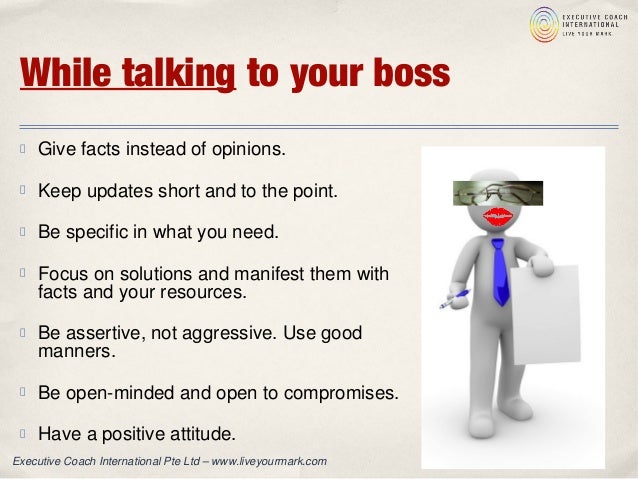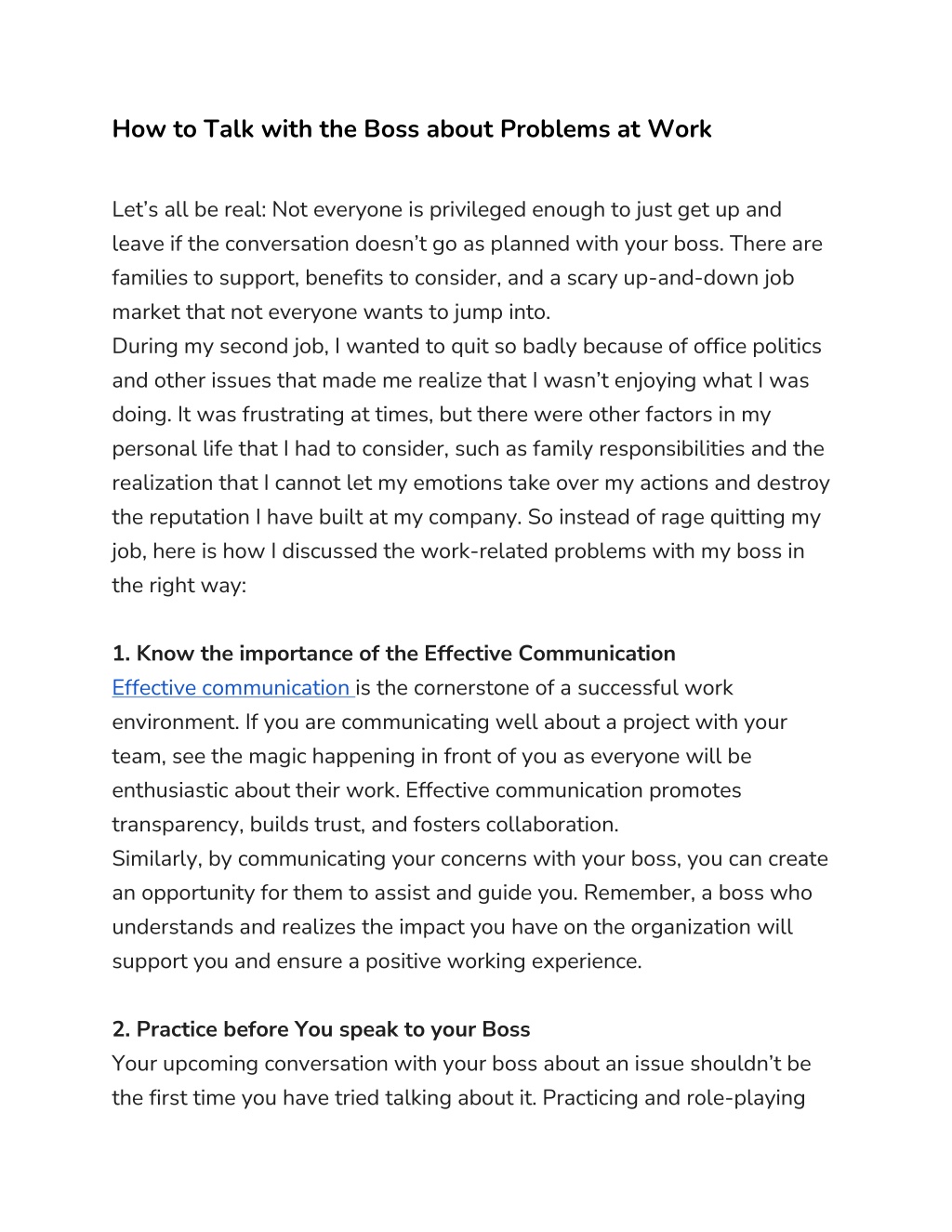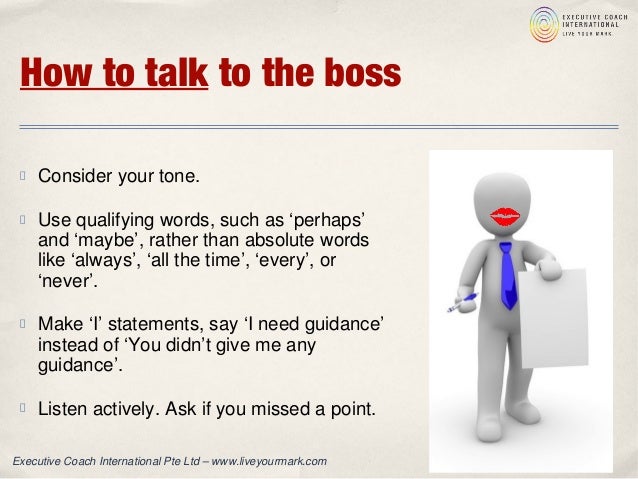How To Talk To Your Boss About Problems At Work

The modern workplace, for all its advancements in technology and employee benefits, remains a breeding ground for stress and discontent. Unaddressed issues, ranging from interpersonal conflicts to systemic inefficiencies, can silently erode productivity, morale, and ultimately, a company's bottom line. Learning how to effectively communicate these problems to your supervisor is not just a career skill; it's a crucial component of a healthy and thriving work environment.
This article provides a comprehensive guide on how to approach your boss with workplace concerns. It emphasizes preparation, clear communication, and a solution-oriented mindset. It also draws on expert advice from HR professionals and career coaches, offering practical strategies for navigating sensitive conversations and achieving positive outcomes.
Preparing for the Conversation
Before scheduling a meeting with your boss, it's crucial to thoroughly prepare your thoughts and gather relevant information. This preparation involves identifying the specific problem, gathering evidence, and considering potential solutions.
Start by clearly defining the issue. Avoid generalizations and focus on specific instances or behaviors that are causing concern. For example, instead of saying "The workload is too high," specify "I'm consistently working overtime on projects X and Y, which is affecting my ability to meet deadlines on project Z."
Document your concerns with objective data whenever possible. This could include examples of emails, project timelines, or performance metrics. Evidence strengthens your argument and demonstrates the seriousness of the issue.
Consider possible solutions before approaching your boss. Thinking proactively shows that you're not just complaining, but actively seeking to improve the situation. Presenting potential solutions demonstrates initiative and a collaborative spirit.
Scheduling and Initiating the Conversation
Choosing the right time and setting for the conversation is critical. A rushed or public discussion can hinder open communication and lead to misunderstandings.
Request a private meeting with your boss. Frame your request as a need to discuss a work-related concern that requires their attention. Avoid springing the issue on them unexpectedly. According to a recent SHRM (Society for Human Resource Management) report, surprise confrontations are less likely to yield positive results.
Start the conversation by acknowledging your boss's time and expressing your commitment to finding a resolution. Use a professional and respectful tone throughout the discussion.
Communicating Effectively
During the conversation, focus on clear and concise communication. Avoid accusatory language and focus on the impact of the problem on your work and the team.
Use "I" statements to express your concerns. For example, instead of saying "You're not providing enough support," say "I'm feeling overwhelmed with project X and would appreciate guidance on prioritizing tasks." This approach reduces defensiveness and promotes a more collaborative dialogue.
Actively listen to your boss's perspective. Give them an opportunity to respond and share their thoughts. Understanding their viewpoint can help you identify potential solutions that address both your concerns and their priorities. Listening is a critical skill in effective communication.
Present your proposed solutions clearly and concisely. Explain how each solution would address the problem and benefit the team or organization.
Navigating Difficult Conversations
Sometimes, conversations about workplace problems can be challenging, especially if they involve sensitive topics like compensation, performance feedback, or interpersonal conflicts.
If you anticipate resistance, remain calm and professional. Avoid getting defensive or emotional. Focus on presenting your concerns objectively and respectfully.
If the conversation becomes heated, it's okay to suggest taking a break and resuming the discussion later. This allows both parties to cool down and approach the conversation with a clearer head.
Remember that your boss is a person too, and they may have their own pressures and constraints. Try to understand their perspective and find common ground.
Following Up and Seeking Support
After the conversation, follow up with your boss to confirm any agreed-upon actions or next steps. This demonstrates your commitment to resolving the issue and ensures accountability.
If the problem persists or if you feel uncomfortable addressing it directly with your boss, consider seeking support from HR or a trusted colleague. HR departments are often equipped to mediate conflicts and provide guidance on workplace issues.
Document all interactions and actions taken related to the problem. This documentation can be valuable if further escalation is necessary.
Looking Ahead
Effectively communicating workplace problems to your boss is an ongoing process. By developing strong communication skills and fostering a collaborative relationship with your supervisor, you can create a more positive and productive work environment for yourself and your colleagues.
Regularly check in with your boss to provide updates on your progress and address any emerging issues. This proactive approach can prevent small problems from escalating into larger conflicts. Communication is key to success.
Ultimately, a culture of open communication and mutual respect is essential for a thriving workplace. By taking the initiative to address problems constructively, you can contribute to creating such an environment.


















